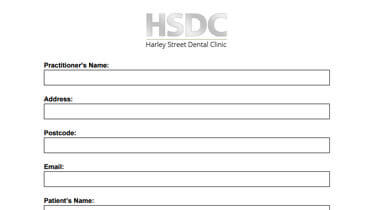Periodontics
Contact Us
We treat complex periodontal cases with a mixture of non-surgical and surgical treatments, tailored to each individual patient's needs. Treatments include removal of the bacteria that cause the condition, education about how to manage the condition and stop it from progressing, and in some cases procedures to repair damaged bone and to re-contour the gums. We may use periodontal lasers for some treatments, which is more comfortable and less time-consuming for patients.
Periodontal disease, commonly known as gum disease, is one of the leading causes of tooth loss for adults in the UK. There are two forms of gum disease, the milder version being gingivitis and the more serious form being periodontitis.
Gum disease is caused by bacterial plaque, with other factors including poor nutrition, smoking, tooth grinding, diabetes, stress and some medications increasing the likelihood of developing the condition. Most people will experience gingivitis at some stage of life, and the symptoms can be hard to spot. Things to look out for include:
- Gums that bleed during brushing or when eating certain foods (blood on the toothbrush is a common first sign)
- Swollen gums that may or may not be painful
- Bad breath
If you notice any of these symptoms you should book an appointment with your dentist immediately. The early stages of gum disease can be treated with a visit to the hygienist and an improved home oral health regime, which your dentist or hygienist can advise you about.
Untreated, gingivitis can progress to the more serious periodontitis. Some people are more susceptible to the bacteria that cause gum disease, increasing their chances of developing periodontitis and making early intervention even more important.
Periodontitis is characterised by:
- Tooth ligaments detaching
- Destruction of surrounding bone
- Teeth becoming loose or wobbly
- Tooth loss










